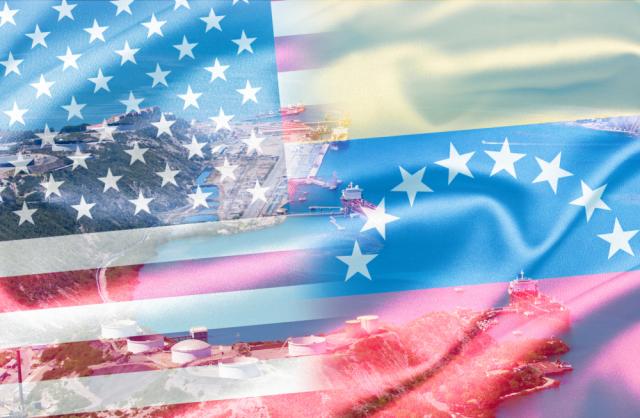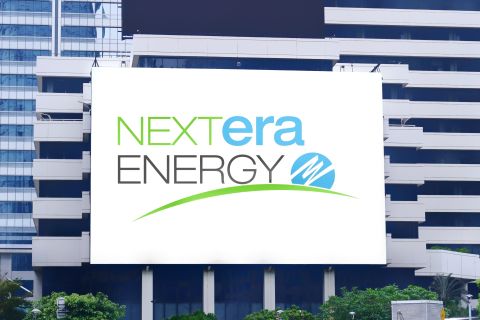
Despite U.S. gestures toward Eni and Repsol, U.S. producer Chevron Corp. continues in Venezuela but with limited abilities and restrictions on its operations. (Source: Hart Energy, Shutterstock.com)
Italy’s Eni SpA and Spain’s Repsol SA have been given the go ahead by Washington to ship their share of Venezuelan oil production to Europe as part of broader U.S. plans to help European countries reduce their reliance on Russian energy.
The two European oil and gas producers will be allowed to use the Venezuelan oil shipments, expected to start as early as July, to satisfy unpaid debts or dividends, Reuters reported on June 5, citing sources familiar with the matter.
“I think this is a small step in helping Europe replace Russian supplies,” Lipow Oil Associates President Andrew Lipow told Hart Energy. “It may also be the first step in ultimately easing sanctions on Venezuela that could lead to a material increase in production.”
The deal doesn’t appear to include provisions to allow the companies to engage in oil-for-diesel swaps with Venezuela, which were halted under the Donald Trump administration.
Under the diesel swaps, Eni and Repsol received Venezuelan oil and in exchange sent fuel to Venezuela used by industry to transport goods from food to medical supplies. The diesel swaps provided generous assistance to Venezuela amid ongoing political, economic and humanitarian crises.
The U.S. State Department didn’t reply to an emailed request to confirm the news. Media officials with Eni and Repsol didn’t reply to emails to confirm the details.
U.S. Goodwill Gestures
Washington continues to explore options to reduce supply fears and negative effects on global markets stemming from the Ukraine war, which span higher energy and transportation costs to inflation.
Despite U.S. gestures toward Eni and Repsol, U.S. producer Chevron Corp. continues in Venezuela but with limited abilities and restrictions on its operations. Chevron’s renewed license in Venezuela expires in November 2022 and for now just allows the company to communicate with state-owned Petroleos de Venezuela (PDVSA).
Further sanction relief for Chevron will likely not come until the U.S. sees some advancement towards “free and fair” presidential elections and the restart of negotiations in Mexico City between the ruling party and opposition factions seeking solutions to Venezuela’s multiple crises, oil and political pundit argue.
“[Venezuela’s President Nicolas] Maduro says he will not go to Mexico without first receiving a relevant oil concession [but] the USA says that it’s not going to give a concession without negotiations in Mexico,” Datanálisis President Luis Vicente León said June 3 in a post on Twitter. “For now the dog is biting its tail,” León wrote.
Venezuelan Upside
Venezuela, which sits atop the world’s largest accumulation of heavy and extra-heavy oil resources, is also home to the world’s largest proven oil reserves. Asia is the primary destination for Venezuela's oil exports but the U.S. is the natural market for Venezuelan oil due to the numerous refineries constructed to receive the heavy barrels.
However, Venezuela’s ability to boost oil production in the near-term is limited due to U.S. sanctions imposed in early 2019 to bring down the country’s oil sector and topple Maduro and financial issues at PDVSA that have led to a drastic reduction in the company’s production capacity.
PDVSA’s production in mid-May of 2022 was close to 900,000 bbl/d, Venezuela’s Petroleum Chamber President Reinaldo Quintero said May 16 during an interview broadcast by Venezuela’s television network Globovision.
“Venezuela could produce 1.2 million-1.5 million bbl/d with the correct measures, but it’s a question of time owing to a variety of issues including US sanctions and auto-sanctions,” Quintero added, referring to “auto-sanctions” as self-inflicted wounds.
According to OPEC’s Monthly Oil Market Report and data from secondary sources, Venezuela’s production averaged 681,000 bbl/d in the first quarter of 2022. This compares to average production in April of 2022 of 707,000 bbl/d, according to OPEC.
Recommended Reading
Solar Panel Tariff, AD/CVD Speculation No Concern for NextEra
2024-04-24 - NextEra Energy CEO John Ketchum addressed speculation regarding solar panel tariffs and antidumping and countervailing duties on its latest earnings call.
NextEra Energy Dials Up Solar as Power Demand Grows
2024-04-23 - NextEra’s renewable energy arm added about 2,765 megawatts to its backlog in first-quarter 2024, marking its second-best quarter for renewables — and the best for solar and storage origination.
BCCK, Vision RNG Enter Clean Energy Partnership
2024-04-23 - BCCK will deliver two of its NiTech Single Tower Nitrogen Rejection Units (NRU) and amine systems to Vision RNG’s landfill gas processing sites in Seneca and Perry counties, Ohio.
Clean Energy Begins Operations at South Dakota RNG Facility
2024-04-23 - Clean Energy Fuels’ $26 million South Dakota RNG facility will supply fuel to commercial users such as UPS and Amazon.
Romito: Net Zero’s Costly Consequences, and Industry’s ‘Silver Bullet’
2024-04-22 - Decarbonization is generally considered a reasonable goal when presented within the context of a trend, as opposed to a regulatory absolute.






